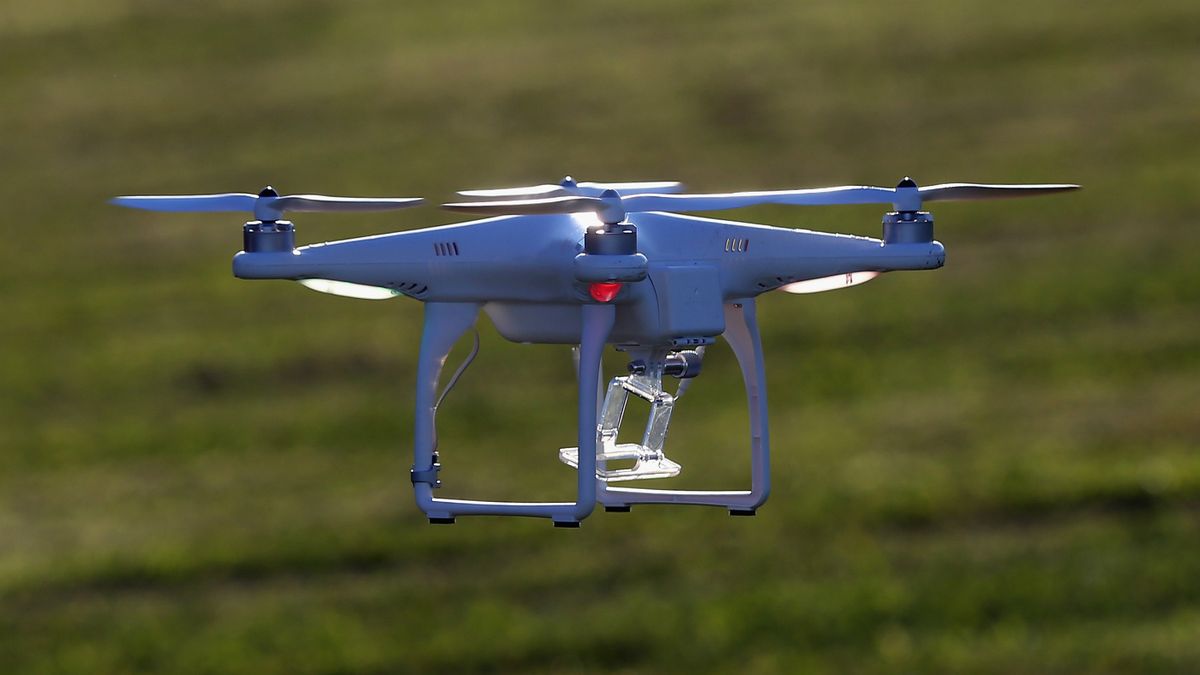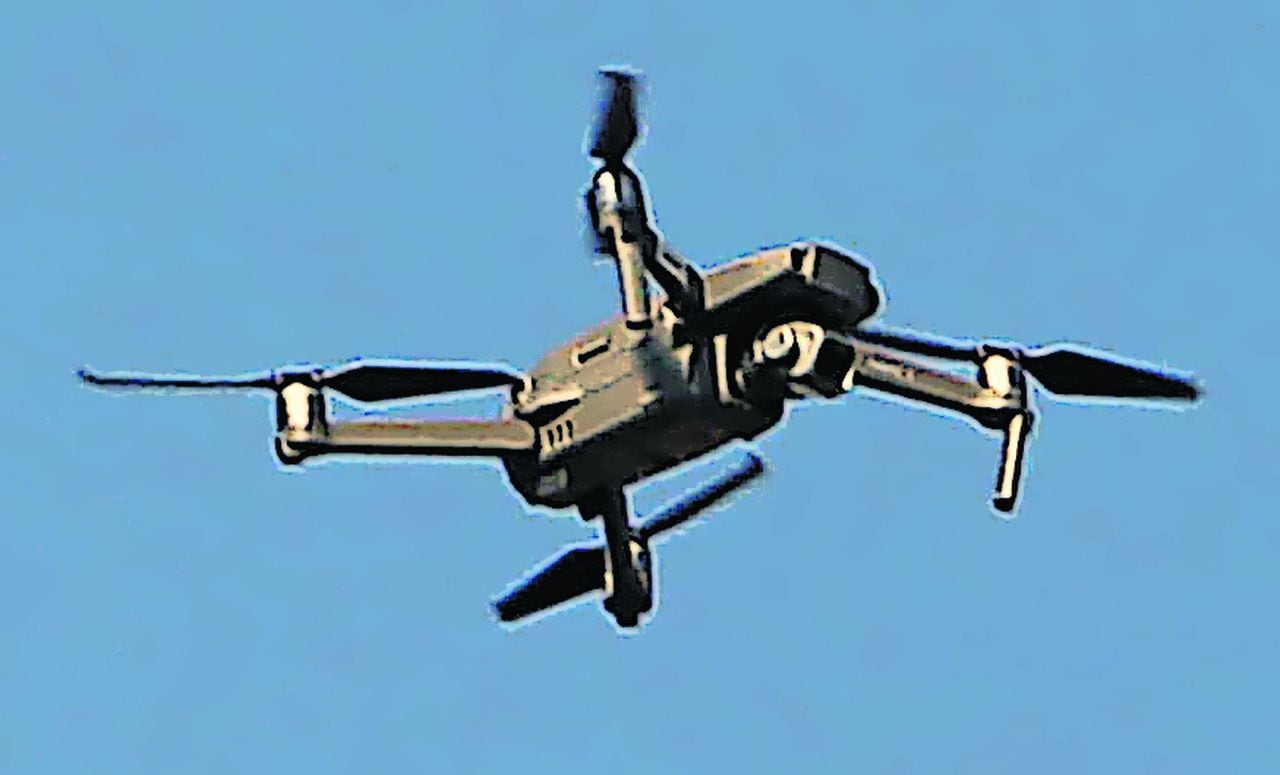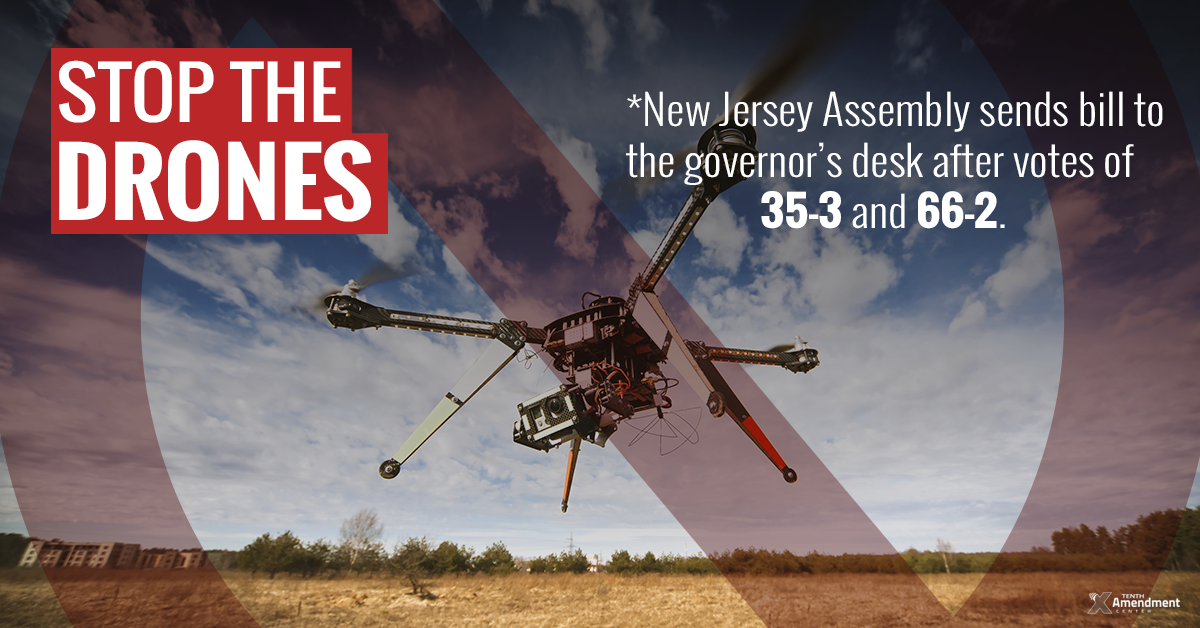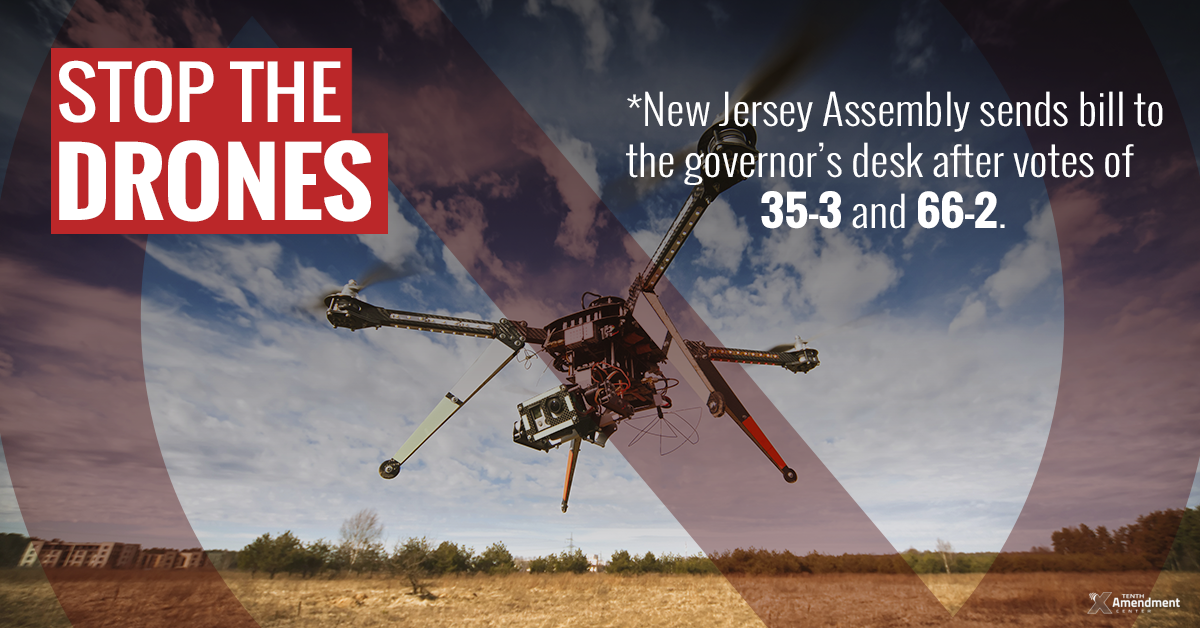Drones Over New Jersey Solved delves into the complex landscape of unmanned aerial vehicle (UAV) regulation, incidents, and public perception within the state. This exploration examines the legal framework governing drone operations, analyzes significant past incidents, and investigates the role of drones in law enforcement. Furthermore, it assesses public opinion and anticipates future trends in drone technology and its societal impact in New Jersey.
The narrative navigates the intricacies of New Jersey’s drone laws, comparing them to neighboring states and highlighting the penalties for violations. Case studies of notable drone incidents, categorized by type, illustrate the challenges and successes of UAV integration. We’ll explore the ethical considerations of law enforcement drone usage and analyze the evolving public perception of drones, incorporating visual representations of public opinion.
Finally, we look towards the future, predicting technological advancements and their influence on drone safety and regulation.
Drone Regulations in New Jersey
Navigating the airspace above New Jersey with a drone requires understanding the state’s specific regulations. These laws, influenced by federal guidelines and evolving technology, aim to balance the benefits of drone technology with public safety and privacy concerns. This section details the current legal framework governing drone operation in New Jersey, including licensing, penalties, and comparisons with neighboring states.
Current Drone Laws and Regulations in New Jersey
New Jersey’s drone regulations largely mirror federal regulations established by the Federal Aviation Administration (FAA). Operators must register their drones with the FAA if they weigh over 0.55 pounds, adhere to airspace restrictions (avoiding airports and other restricted areas), and maintain visual line of sight with their drone at all times unless operating under specific exemptions. Furthermore, New Jersey has specific laws regarding drone operation near critical infrastructure, such as power plants and water treatment facilities.
Unauthorized operation in these areas can result in significant penalties.
Recent reports of unauthorized drone activity over New Jersey caused understandable concern. Thankfully, investigations into these incidents, as detailed in this helpful article drones over new jersey solved , have shed light on the situation. Understanding the source of these flights is crucial for improving airspace security and preventing future disruptions. The resolution of these drone issues highlights the importance of proactive measures.
Licensing Requirements for Commercial Drone Operators
Commercial drone operators in New Jersey must obtain a Part 107 Remote Pilot Certificate from the FAA. This certification requires passing a knowledge test demonstrating proficiency in aviation regulations and safe drone operation. The certificate allows commercial use of drones, such as aerial photography, inspections, and delivery services, but operators must still comply with all state and local regulations.
Comparison of New Jersey Drone Laws with Neighboring States
New Jersey’s drone laws are largely consistent with those of its neighboring states, such as New York, Pennsylvania, and Delaware. All these states generally adhere to the FAA’s federal regulations. However, specific local ordinances may vary, particularly concerning airspace restrictions near specific landmarks or events. Operators should always check local regulations before flying in any particular area.
Summary of Key Aspects of New Jersey Drone Regulations
| Regulation Type | Description | Penalties | Applicable Areas |
|---|---|---|---|
| FAA Registration | Required for drones over 0.55 lbs. | Fines and potential legal action | Statewide |
| Visual Line of Sight | Drone must be within the operator’s visual range. | Fines and potential legal action | Statewide |
| Airspace Restrictions | Prohibition of flight near airports and other restricted areas. | Fines, grounding, and potential legal action | Specific locations near airports, critical infrastructure, etc. |
| Part 107 Certification (Commercial) | Required for commercial drone operations. | Fines, loss of certification, and potential legal action | Statewide for commercial operations |
Incidents Involving Drones in New Jersey: Drones Over New Jersey Solved

While drone technology offers numerous benefits, incidents involving drones in New Jersey highlight the importance of safe and responsible operation. Understanding these incidents, their causes, and outcomes helps improve safety protocols and public awareness.
Notable Drone Incidents in New Jersey
- Accidents: A drone malfunction leading to a crash in a populated area, resulting in minor property damage. Another instance involved a drone colliding with a power line, causing a brief power outage.
- Near Misses: Several reported near misses involving drones and aircraft near major airports, underscoring the need for strict adherence to airspace restrictions.
- Illegal Activity: Cases of drones being used for illegal surveillance or the unauthorized delivery of contraband. These incidents often involve law enforcement intervention.
Common causes of drone-related problems include operator error (loss of control, violating airspace restrictions), mechanical malfunctions, and intentional misuse of the technology for illegal activities. Many incidents could have been prevented with better pilot training, adherence to regulations, and increased public awareness.
Law Enforcement Use of Drones in New Jersey
Law enforcement agencies in New Jersey increasingly utilize drones for various purposes, enhancing public safety and operational efficiency. However, the ethical implications of drone deployment require careful consideration.
Drone Deployment by Law Enforcement, Drones over new jersey solved
New Jersey law enforcement agencies employ drones for tasks such as search and rescue operations, crime scene investigation, traffic monitoring, and surveillance of large public events. Drones provide aerial perspectives, enhancing situational awareness and improving response times in emergency situations. For instance, drones have been successfully used to locate missing persons in wooded areas or to monitor large-scale protests.
Benefits and Limitations of Law Enforcement Drone Use
The benefits of using drones include improved situational awareness, reduced response times, and enhanced safety for officers in hazardous situations. However, limitations include privacy concerns, potential for misuse, and the need for specialized training and maintenance.
Example of Successful Drone Deployments
A successful example involves the use of a drone to locate a suspect fleeing a crime scene. The drone’s aerial view provided critical information, leading to a swift arrest. Another example includes using drones to assess the damage after a natural disaster, allowing for faster allocation of resources.
Ethical Considerations of Law Enforcement Drone Use
A hypothetical scenario: A drone is used to conduct surveillance on a suspect’s home without a warrant. This raises serious ethical concerns regarding privacy rights. Balancing public safety with individual liberties is a crucial aspect of responsible drone deployment by law enforcement.
Public Perception of Drones in New Jersey
Public opinion on drone use in New Jersey is multifaceted, encompassing both enthusiasm for the technology’s potential benefits and concerns about privacy and safety. Understanding these varied perspectives is essential for responsible regulation and public acceptance.
Public Attitudes Towards Drone Use
Many New Jersey residents recognize the potential benefits of drones in various sectors, such as emergency response, infrastructure inspection, and delivery services. However, significant concerns exist regarding privacy violations, potential misuse by unauthorized individuals, and the possibility of accidents.
Common Concerns and Anxieties

Privacy is a major concern, with worries about unauthorized surveillance and data collection. Safety is another key issue, with fears of drone malfunctions causing harm or property damage. Noise pollution from drones is also a growing concern in residential areas.
Comparison with Other States
Public perception of drones in New Jersey is broadly similar to that in other states. Concerns about privacy and safety are prevalent nationwide, though the specific focus of these concerns might vary depending on local contexts and incidents.
Visual Representation of Public Opinions
A spectrum depicting public opinion could range from strongly positive (enthusiastic acceptance, focus on benefits), through neutral (cautious optimism, waiting for further developments), to strongly negative (significant concerns about privacy and safety, outright opposition to drone use). The distribution along this spectrum would likely show a clustering around the neutral position, with smaller groups holding strongly positive or negative views.
Technological Advancements and Drone Safety in New Jersey
Ongoing advancements in drone technology are significantly improving safety and addressing public concerns. This section explores recent innovations and their impact on reducing incidents and improving regulation.
Recent Technological Advancements
Recent advancements include improved battery technology for longer flight times, more sophisticated obstacle avoidance systems using sensors and AI, and enhanced GPS capabilities for precise navigation. The development of anti-collision systems and fail-safe mechanisms also contribute to increased safety.
Impact on Addressing Concerns

These advancements directly address concerns about accidents and malfunctions. Obstacle avoidance systems minimize the risk of collisions, while improved GPS and flight control enhance stability and reduce the likelihood of operator error. Longer flight times allow for more complex missions while maintaining safety.
Impact on Reducing Incidents
The introduction of these safety features has demonstrably reduced incidents related to drone malfunctions and collisions. Data from the FAA and other organizations show a decline in drone-related accidents since the implementation of many of these technological advancements.
Table of Technological Advancements and their Impact
| Advancement | Impact on Safety | Associated Regulations |
|---|---|---|
| Obstacle Avoidance Systems | Reduces collision risk | FAA guidelines on safe operation |
| Enhanced GPS | Improves navigation precision | FAA regulations on airspace restrictions |
| Improved Battery Technology | Extends flight time, allowing for more complex missions | FAA guidelines on maximum flight time and battery safety |
| Fail-safe Mechanisms | Provides automatic return-to-home functionality in case of malfunctions | FAA guidelines on drone design and safety features |
Future of Drones in New Jersey
The future of drone technology in New Jersey is poised for significant growth, impacting various sectors and presenting both opportunities and challenges. This section explores potential trends and their implications.
Potential Future Trends
We can expect increased integration of drones into various sectors, including delivery services, infrastructure inspection, agriculture, and emergency response. The use of drone swarms for complex tasks and the development of autonomous drone operations are also likely future trends.
Impact on Various Sectors
Drones will likely revolutionize delivery services, offering faster and more efficient delivery options. In agriculture, drones will be used for precision farming, monitoring crop health, and applying pesticides. Infrastructure inspection will become safer and more efficient with drone-based inspections of bridges, power lines, and other critical infrastructure.
Potential Challenges
Challenges include addressing public concerns about privacy and safety, ensuring effective regulation to prevent misuse, and managing the increasing number of drones in the airspace. Cybersecurity concerns related to drone hacking and data breaches also need to be addressed.
Timeline of Future Developments
A potential timeline might include: Near term (1-3 years): Widespread adoption of advanced obstacle avoidance systems. Mid-term (3-5 years): Increased use of autonomous drones for specific tasks. Long-term (5+ years): Integration of drone traffic management systems and the widespread use of drone swarms for complex operations.
In conclusion, the issue of drones over New Jersey is far from static. The ongoing evolution of technology, coupled with evolving legal frameworks and shifting public opinion, creates a dynamic environment. Understanding the past, present, and potential future of drone integration in New Jersey requires a multi-faceted approach encompassing legal compliance, technological innovation, and responsible public discourse. The careful consideration of safety, ethical implications, and community concerns will ultimately determine the successful and beneficial integration of drones into New Jersey’s airspace.
Quick FAQs
What are the most common violations of drone regulations in New Jersey?
Common violations include flying in restricted airspace, operating without proper licensing, and disregarding weight and distance limitations.
How can I obtain a drone pilot license in New Jersey?
Licensing requirements vary depending on the type of drone operation (commercial vs. recreational). Check the FAA website and New Jersey State Police website for specific details and application procedures.
Are there specific areas in New Jersey where drone operation is completely prohibited?
Yes, areas near airports, critical infrastructure, and certain public events often have restricted airspace. Consult FAA airspace maps and local ordinances for specific prohibitions.
The recent concerns regarding unauthorized drone activity over New Jersey appear to be resolved. This highlights the importance of proper drone operation and licensing, a process readily understood by reviewing the requirements for a transport canada drone license , which offers a clear framework for safe and legal drone usage. Understanding such regulations is crucial to prevent similar incidents in the future, ensuring safe airspace over New Jersey and beyond.
What resources are available for reporting illegal drone activity in New Jersey?
Report illegal drone activity to local law enforcement or the FAA. They have dedicated channels for reporting such incidents.
